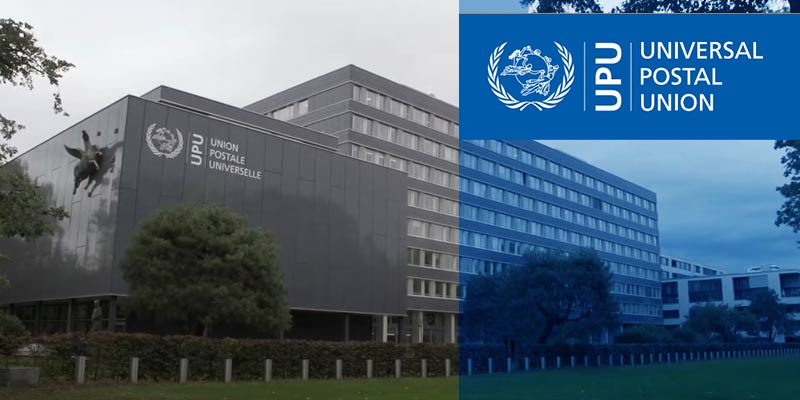- India
- Jun 01
Govt to establish regional office of Universal Postal Union in New Delhi
• The Union Cabinet, chaired by Prime Minister Narendra Modi, has approved to establish a regional office of the Universal Postal Union (UPU) in New Delhi.
• The approval enables India to play an active role at multilateral organisations in postal sector with emphasis on South-South and Triangular cooperation.
• South-South cooperation is a manifestation of solidarity among countries of the South that contributes to their national well-being, their national and collective self-reliance and the attainment of internationally agreed development goals
• Triangular cooperation involves Southern-driven partnerships between two or more developing countries supported by a developed country/or multilateral organisation to implement development cooperation programmes and projects.
• India will provide a field project expert, staff and office set up for UPU’s regional office.
• Projects on capacity building and training, improving efficiency and quality of postal services, enhancement of postal technology, e-commerce and trade promotion, etc will be prepared and implemented for the region by this office in coordination with UPU.
• The initiative would help expand India’s diplomatic footprint and strengthen relations with other countries, specially in Asia-Pacific region and will enhance India’s presence at the global postal forums.
Universal Postal Union
• The Universal Postal Union (UPU), with its headquarters in the Swiss capital Bern, is one of the oldest international organisations.
• It was established in 1874.
• India became a member of the Universal Postal Union in 1876.
• With its 192 member countries, the UPU is the primary forum for cooperation between postal sector players. It helps to ensure a truly universal network of up-to-date products and services.
• It coordinates postal policies among member nations, in addition to the worldwide postal system.
• The UPU became a specialised agency of the United Nations on July 1, 1948. The UPU contributes to the development of UN policies and activities that have a direct link with its mandate and missions to promote social and economic development.
• The organisation fulfils an advisory, mediating and liaison role, and provides technical assistance where needed.
• It sets the rules for international mail exchanges and makes recommendations to stimulate growth in mail, parcel and financial services volumes and improve quality of service for customers.
• Any member country of the United Nations may become a member of the UPU.
• Any non-member country of the United Nations may become a UPU member provided that its request is approved by at least two-thirds of the member countries of the UPU.
Origin of Universal Postal Union
• During the 17th and 18th centuries, the exchange of mail between countries was largely governed by bilateral postal agreements. But by the 19th century, the web of bilateral agreements had become so complex that it began to impede the rapidly developing trade and commercial sectors. Order and simplification were needed in the international postal services.
• In 1840, Sir Rowland Hill introduced a system in England whereby postage on letters had to be prepaid. Sir Rowland Hill was also credited with introducing the world’s first postage stamp.
• Heinrich von Stephan, a senior postal official from the North German Confederation, drew up a plan for an international postal union. At his suggestion, the Swiss government convened an international conference in Bern on September 15, 1874. The conference was attended by representatives from 22 nations.
• On October 9 of the same year, a day now celebrated as World Post Day, the Treaty of Bern, establishing the General Postal Union, was signed.
• Membership in the Union grew so quickly during the following three years that its name was changed to the Universal Postal Union in 1878.
• The Treaty of Bern succeeded in unifying a confusing international maze of postal services and regulations into a single postal territory for the reciprocal exchange of letters.
The UPU consists of four bodies
i) The Congress: Congress is the supreme authority of the Universal Postal Union (UPU) and meets every four years.
ii) The Council of Administration: The Council ensures the continuity of the UPU’s work between Congresses, supervises its activities and studies regulatory, administrative, legislative and legal issues.
iii) The Postal Operations Council: It is the technical and operational mind of the UPU and consists of 48 member countries, elected during Congress.
iv) The International Bureau: Fulfilling a secretariat function, the International Bureau provides logistical and technical support to the UPU's bodies.
Manorama Yearbook app is now available on Google Play Store and iOS App Store

